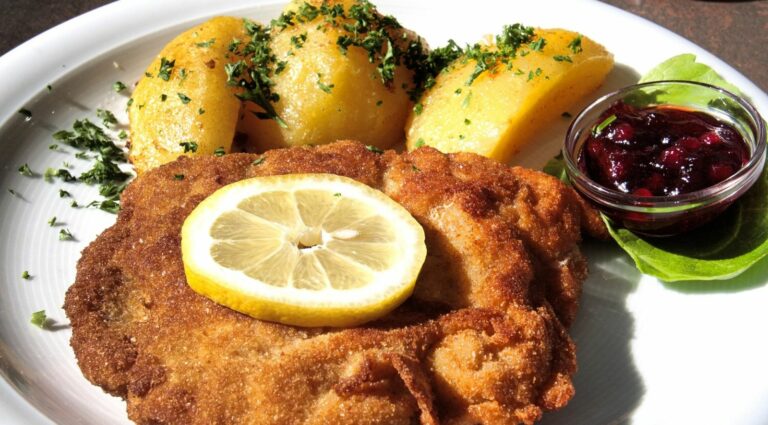Introduction: An overview of German cuisine
German cuisine is often characterized by its hearty and savory dishes, reflecting the country’s agricultural and industrial roots. Meat, potatoes, and bread are staples of the German diet, and meals often incorporate a range of herbs and spices for added flavor. German cuisine varies by region, with dishes in the north featuring more fish and those in the south featuring more meat. A popular aspect of German cuisine is the tradition of beer brewing, with over 1,300 breweries in the country and a wide variety of beer styles to choose from.
German cuisine vs. French cuisine: Key differences
While both German and French cuisine incorporate meat and vegetables, there are key differences in their approach to cooking. French cuisine is known for its rich sauces and delicate flavors, while German cuisine emphasizes bold and hearty flavors. French cuisine often features lighter dishes and emphasizes presentation, while German cuisine tends to focus more on substance over style. Additionally, French cuisine features a greater variety of cheeses and wines, while German cuisine is more closely associated with beer.
German cuisine vs. Italian cuisine: Contrasts and similarities
German and Italian cuisine both feature a range of meats, vegetables, and baked goods, but with distinct differences in flavor and preparation. Italian cuisine is known for its emphasis on fresh ingredients and simple yet flavorful dishes, while German cuisine often incorporates more complex spice blends and cooking techniques. Pasta and pizza are central to Italian cuisine, whereas German cuisine is more closely associated with potatoes and bread. Despite these contrasts, both cuisines place a high value on communal dining and the enjoyment of good food and drink.
German cuisine vs. Spanish cuisine: Comparing flavors and ingredients
German and Spanish cuisine share some similarities, such as a focus on rich stews and roasted meats. However, Spanish cuisine is known for its bold and spicy flavors, while German cuisine tends to be more mild and savory. Spanish cuisine features a greater emphasis on seafood and fresh vegetables, while German cuisine utilizes a wider variety of meats and dairy products. Spanish cuisine also features a greater variety of light and refreshing dishes, such as gazpacho and paella, while German cuisine is more closely associated with hearty comfort foods.
German cuisine vs. British cuisine: The influence of culture and history
German and British cuisine share some similarities, such as a focus on roasted meats and potatoes. However, British cuisine has been heavily influenced by its colonial history, incorporating a wide variety of spices and flavors from around the world. German cuisine, on the other hand, has remained more closely tied to its traditional roots. British cuisine features a greater variety of pastries and baked goods, while German cuisine places a greater emphasis on bread and sausages. Additionally, both cuisines feature a love of beer, but British pubs tend to feature a greater variety of ales and ciders.
Conclusion: What sets German cuisine apart
German cuisine is characterized by its hearty and savory dishes, which reflect the country’s agricultural and industrial heritage. While there are similarities between German cuisine and other European cuisines, such as a focus on meat and vegetables, German cuisine stands out for its bold and complex spice blends and its close association with beer. Additionally, German cuisine varies by region, with distinct culinary traditions in the north and south of the country. Overall, German cuisine is a unique and flavorful reflection of the country’s culture and history.

